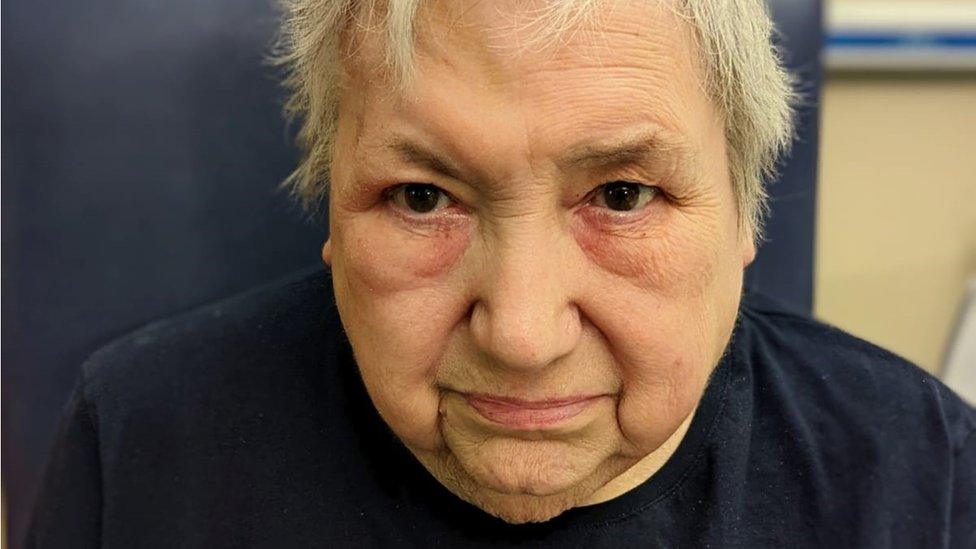NHS patient 'stuck in hospital with months to live'
- Published
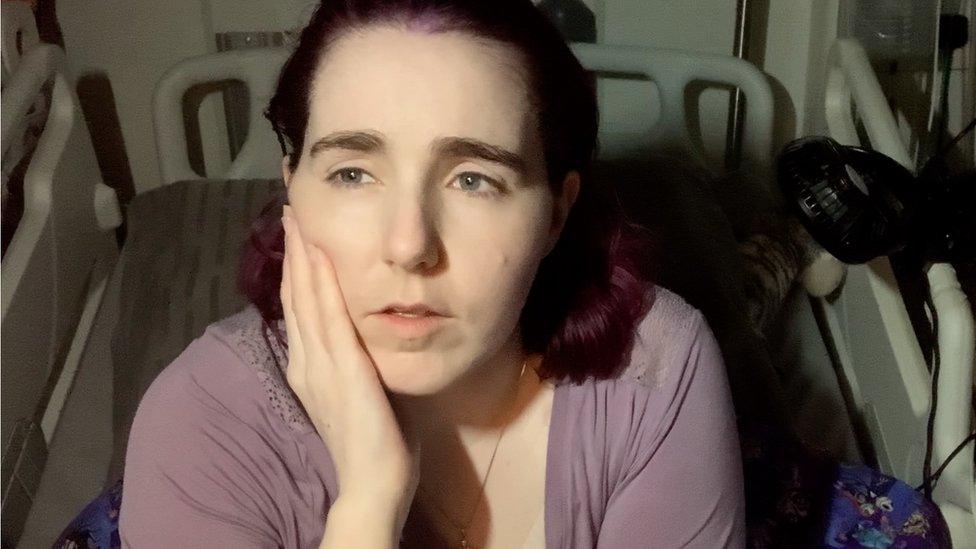
Charlotte Mills-Murray said there had been "a lot of tears" after repeated setbacks in returning home
A woman who may only have months to live has told the BBC she is "angry and frustrated" at being in hospital five months after being cleared to go home.
Charlotte Mills-Murray, 34, said attempts to organise care at her family home had been repeatedly delayed.
Her NHS care teams said getting complex patients home "can take much longer".
The BBC has found a 16% rise over the past year in the number of patients in England who are in hospital despite being well enough to leave.
In January, Prime Minister Rishi Sunak called delayed discharge "the number one problem" facing the NHS.
Charlotte told the BBC there had been "a lot of tears" following numerous setbacks and broken promises over her return home.
"When the hospital says, 'are you ready to go home?' You get excited. And then everything just changes again."
'Stuck in bed'
Charlotte lives with intestinal failure caused by a severe form of Ehlers-Danlos syndrome, which weakens her body's connective tissue.
She was admitted to St James's Hospital in Leeds in June 2022 following an infection, and a new Hickman line - a tube that allows feeding and the administering of pain relief - was inserted.
By November, Charlotte was told she was well enough to be cared for at home, but she remains in hospital following delays in the hiring and training of staff able to support her.
With limited access to a hoist which would enable her to use her wheelchair, Charlotte said she had spent 10 months "stuck in bed".
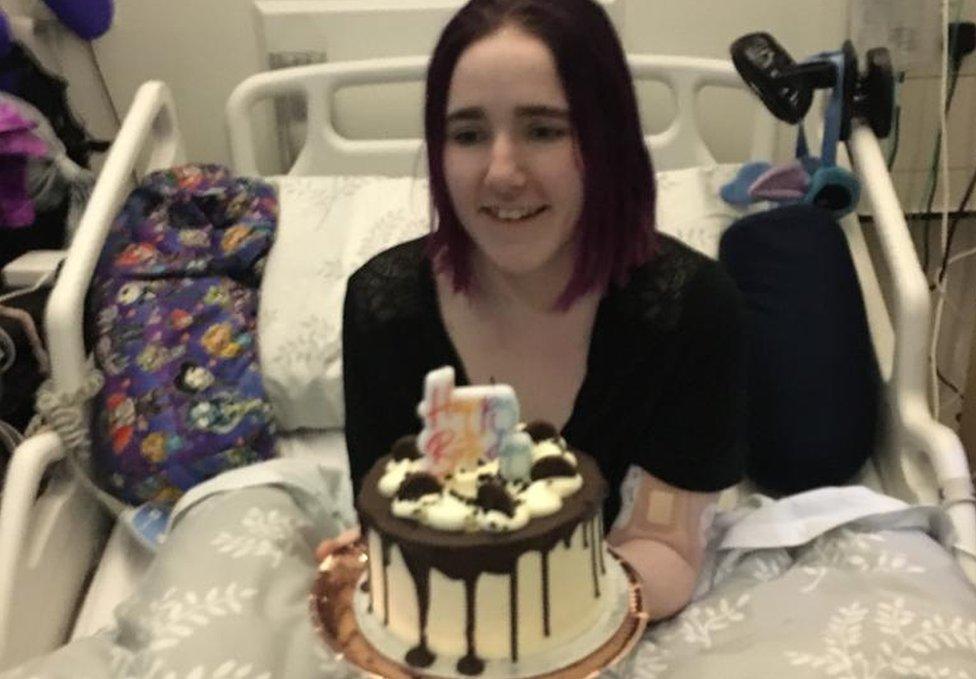
Charlotte celebrated her birthday in her hospital bed
Because of the complexity of her condition, Charlotte only has months to live. She believes her situation merits greater urgency because of the increased risk of infection in hospital.
Each time one of the Hickman lines becomes infected, the choice available for adding a new line reduces.
Charlotte's family worry that with the limited options remaining, in addition to the ongoing pain she lives with, Charlotte may soon have to decide to move to an end-of-life pathway. This would imply she only has weeks left to live.
Charlotte qualifies for 24-hour home care support through the NHS Continuing Healthcare scheme, but she said decisions over how this would be put in place had been slow and unclear.
She said she was initially told to hire care workers from a company whose staff members were not qualified to meet her complex needs, causing weeks of delays.
Her local NHS Trust later agreed that if she hired personal assistants (PAs) it would train them in specialist pain relief techniques.
But by the time Charlotte and her family found people for the role, the trust said the training could no longer be provided.
It has now been agreed that Charlotte can train her own PAs, but there have been subsequent delays caused by issues obtaining the necessary pain relief equipment.
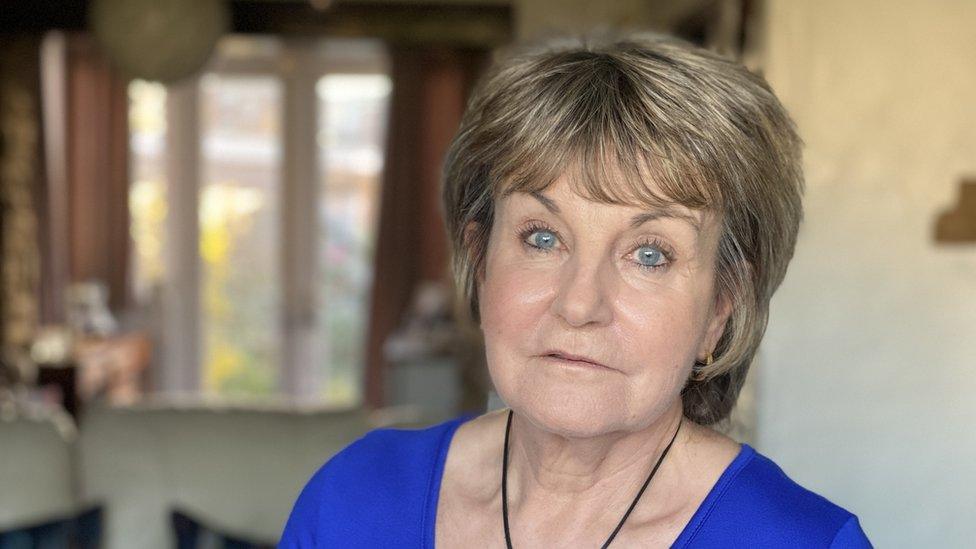
Charlotte's mother, Denise, says time together as a family has been lost
Charlotte's mother, Denise Mills-Murray, believes time has been "wasted".
"We've gone round in circles, and the time-wasting is Charlotte's life. We can't get that back.
"She has such little energy, [and it's] being used, not on quality time, but on fighting to get out of hospital."
Leeds Teaching Hospitals Trust and West Yorkshire Integrated Care Board, the NHS bodies responsible for Charlotte's care, said they were "very sorry that Ms Mills-Murray has been unable to go home for such a long time".
They added that "the vast majority of people are discharged quickly", but that some needed to stay in hospital for longer periods of time "because we need to arrange care at home or further support from other services".
It said in cases where specialised care was required "this can take much longer".
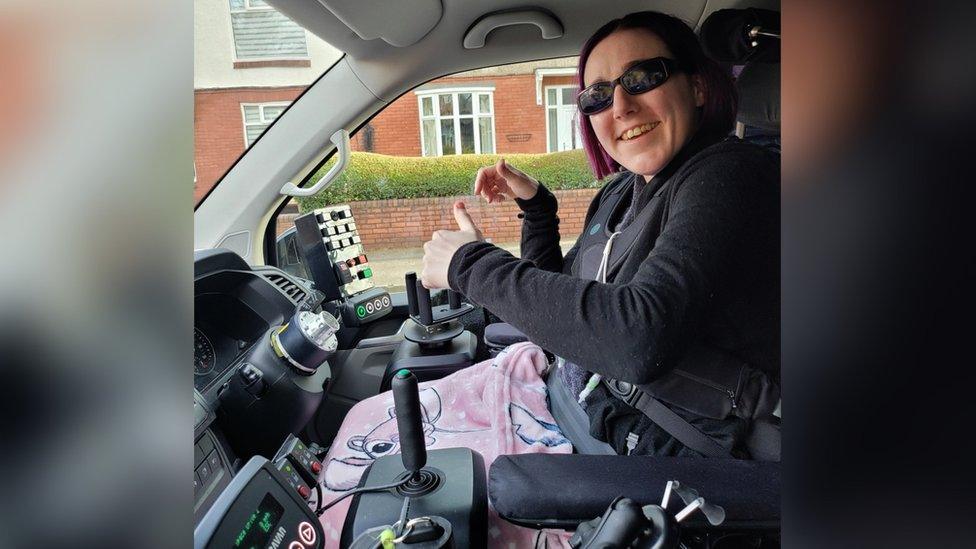
Charlotte has worked as a British Sign Language interpreter for many years
Charlotte's circumstances are more complex than most cases signed off for home discharge.
But during the past winter, one in seven hospital beds in England was taken up by someone medically well enough to leave.
The BBC has found that the average number of adult patients well enough to be discharged at the end of the day has risen 16% in a year: from 11,661 over the winter months of 2021-22 to 13,494 in the same period of 2022-23.
Sally Warren, director of policy at the King's Fund think tank, said this was "the most visible" sign of a health and care system under pressure.
"Because of delayed discharges, you're seeing waiting lists, and queues at A&E and with ambulances.
"You're also seeing people not being able to get the operations they want."
Difficulties in finding local care home places was one cause, she said, but there were also issues in arranging support for those who want to return to their own homes.
"There is a huge workforce crisis," she explained, with low pay being a factor. At the same time there is "an ageing population and more people needing social care".
In 2021, the government pledged "at least" £500m for reforms aimed at plugging staff shortages in England, but on Tuesday it announced that figure has now been halved.
The Department of Health and Social Care said it was "fully committed to speeding up the safe discharge of patients who no longer need to be in hospital" and was making £1.6bn available in England over the next two years to support this, on top of £700m of extra funding in 2022 to ease NHS pressures over the winter.

Are you or a family member affected by hospital discharge delays? Share your experiences by emailing haveyoursay@bbc.co.uk, external.
Please include a contact number if you are willing to speak to a BBC journalist. You can also get in touch in the following ways:
WhatsApp: +44 7756 165803
Tweet: @BBC_HaveYourSay, external
Please read our terms & conditions and privacy policy
If you are reading this page and can't see the form you will need to visit the mobile version of the BBC website to submit your question or comment or you can email us at HaveYourSay@bbc.co.uk, external. Please include your name, age and location with any submission.
- Published4 April 2023
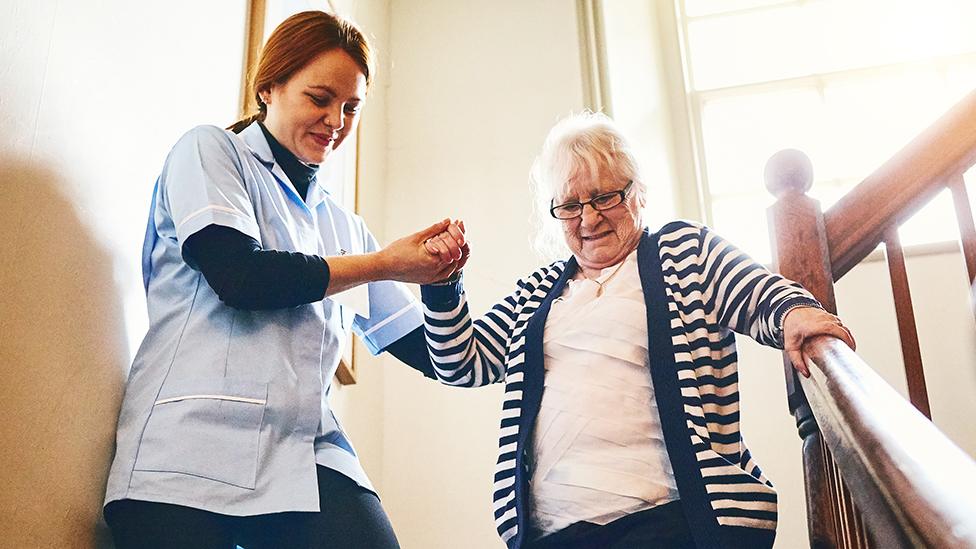
- Published1 November 2022
